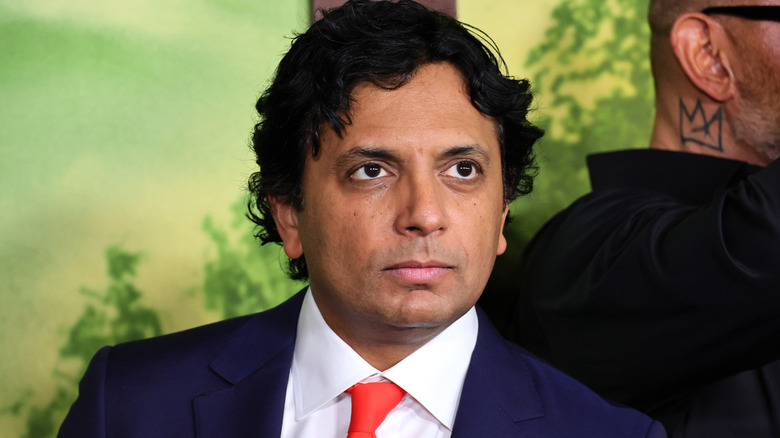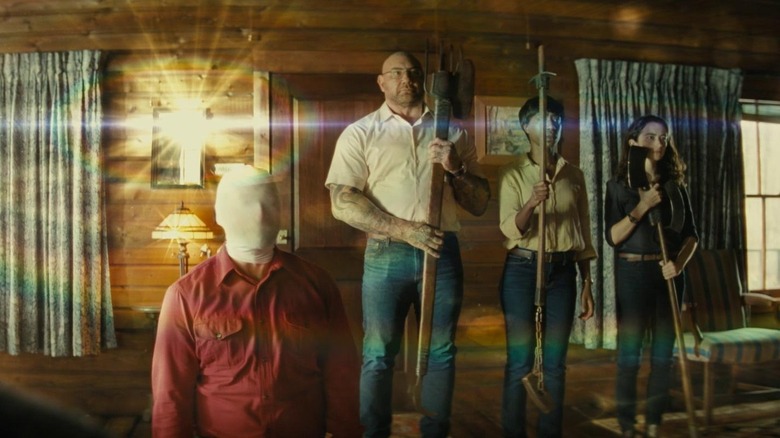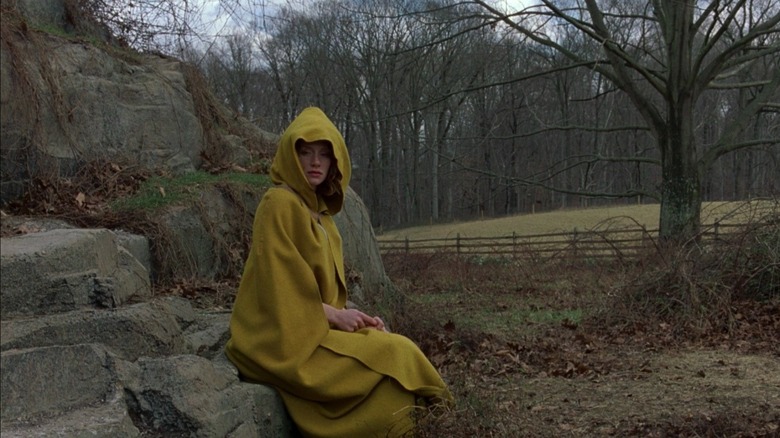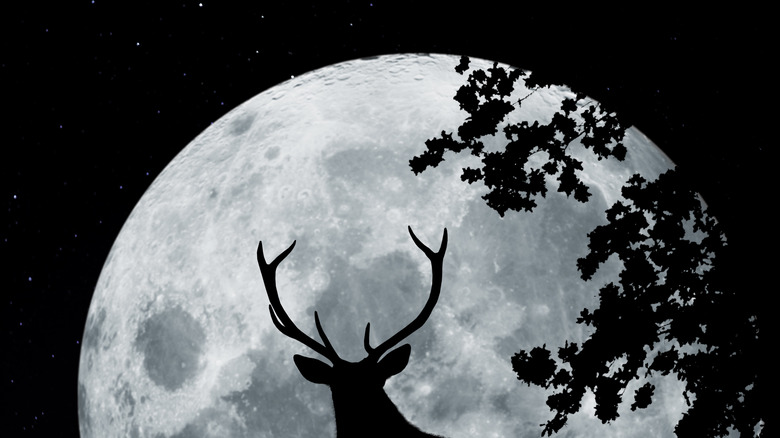After Knock At The Cabin, Here's The Next Horror Novel M. Night Shyamalan Should Adapt
M. Night Shyamalan has made a name for himself over the last 25 years with films that ride the line between the standard human experience and situations that are utterly unfathomable. From the unlikely genesis of a superhero in "Unbreakable" to a world where nature takes its grisly revenge in "The Happening," Shyamalan's work has always hinged on authentic characters facing something that alters their perspective on reality.
Nowhere is this juxtaposition more clear than in the director's latest film, "Knock at the Cabin." While many horror and suspense stories have seen an isolated group of friends or family members facing a threat that forces them to question their existence, Shyamalan's adaptation of the novel "The Cabin at the End of the World" by Paul G. Tremblay takes this formula to a whole other level.
Given that Shyamalan's latest has been a financial success, more than doubling its budget at the box office, the writer-director might consider bringing another folk horror novel to life, and we've got just the book to suggest for his next project. "The Only Good Indians" by Stephen Graham Jones isn't just a chilling horror tale, but also the kind of novel that leans into Shyamalan's strengths as a filmmaker.
Shyamalan's movies are about logic versus belief, and The Only Good Indians is a perfect match
Like many of his films, "Knock at the Cabin" focuses on the intersection between what we know to be true and the type of possibilities that viewers could hardly imagine in their daily lives. "The Only Good Indians" has a similar hook, as the story is centered around four indigenous men who committed a wrongful act in their youth and are now being forced to pay the price. As each of the four men is stalked by the Deer Woman in the present day, they are forced to re-examine the traditional Native American beliefs that they have largely abandoned in their adult lives.
If this sort of plot sounds familiar to you, well, it's because this is tried and true territory for M. Night Shyamalan.
Faith is an important part of the writer-director's storytelling style, and is featured prominently in many of his films, including "The Village" and "Signs." In fact, "Signs" is essentially the story of a man who turns his back on his religion only to suddenly return to it after paranormal events convince him that there's more to life than what he can fathom. "The Only Good Indians" is basically the inverse of this type of story: as the reader follows the increasingly vicious attacks of the Deer Woman, as she brutally kills people one by one, the story becomes even more terrifying because of the notion that faith may be irrelevant, and that she'll come for the book's protagonists whether they believe in her or not.
The Only Good Indians changes perspectives several times throughout
While many of M Night Shyamalan's films focus tightly on a single group or a couple of different perspectives, the filmmaker has been known to deviate from this approach from time to time. The most notable example is the 2004 suspense drama "The Village," a movie with several key characters that weave in and out of the narrative.
Like "The Village," "The Only Good Indians" starts off almost immediately with a character who we think we'll be following closely for the remainder of the story, only for that character to ... well, we won't spoil it, but the structure here is loosely similar to how "The Village" sets up Lucius (Joaquin Phoenix) as its central character, only to have Ivy (Bryce Dallas Howard) take on the lead role. This is, of course, a nod to one of Shyamalan's cinematic heroes, Alfred Hitchcock, who pulled a similar trick with "Psycho." However, "The Only Good Indians" could allow Shyamalan to experiment with this format even further, and in a way that would make the audience increasingly uneasy about the fate of its characters.
"The Only Good Indians" would also allow the filmmaker to go further than ever before in terms of the horror that he could depict on the screen. This is a prospect that only makes more sense after the successful release and reception to "Knock at the Cabin."
The Only Good Indians is a brutally visceral horror tale
Though M. Night Shyamalan has often engaged with horror over the course of his career with films like "The Sixth Sense" and "The Visit," it's worth noting that "Knock at the Cabin" was a more graphic, visceral take on terror. Between the brutal beatings, stabbings, shootings, and even a decapitation, Shyamalan has shown a willingness to go grislier than before. Given that "Knock at the Cabin" is also the director's best-received film in seven years, leaning into this brutality could mark a valuable extension of his brand as a filmmaker. In fact, if he's able to really nail the themes of "The Only Good Indians," which even changes to the perspective of the entity itself at one point, it could feel like a return to form.
Since "The Sixth Sense," Shyamalan has been primarily known for two things. The first is melding the mundane nature of everyday life with something unexpected and life-changing. Meanwhile, the second, and most noteworthy, is his penchant for twists that pull the rug out from under viewers. Like "Knock at the Cabin," "The Only Good Indians" does contain these kinds of twists, but they're not of the typical Shyamalan "gotcha" style. Instead, they're shocking because you just don't expect the story to go where it ultimately does. This aspect would lean into the director's particular talents, while also allowing him to surprise filmgoers in a completely different way.
Ultimately, there are a whole host of reasons why "The Only Good Indians" would be a perfect fit for Shyamalan, and if he hasn't read the Stephen Graham Jones book yet, he should check it out.



